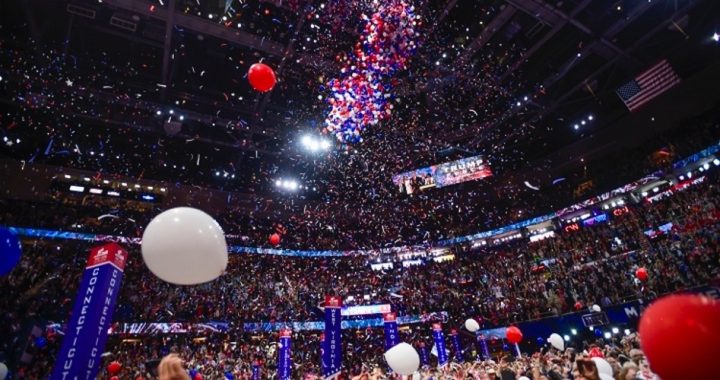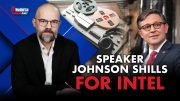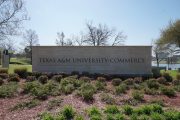
The finale of the Republican National Convention took place last night as Donald Trump made his pitch to the American public as to why they should select him as the next president of the United States. The day also illustrated the national GOP’s “big tent” approach on moral issues — by featuring as speakers both religious-right conservative Jerry Falwell, Jr. and avowed homosexual Peter Thiel.
Falwell, who was one of the first speakers of the day, gave a strong endorsement in which he referred to Trump as “America’s blue-collar billionaire.” Falwell, president of Liberty University, also mentioned a repeal of the Johnson Amendment, which Trump would reiterate in his keynote address. The Johnson Amendment refers to the change in the U.S. tax code that prohibited tax-exempt organizations from endorsing or opposing political candidates. Repealing the law will allow churches to become more politically active. Since religious people tend to be more conservative, this could have potential electoral benefits for Republicans.
Sheriff Joe Arpaio came out to a huge reaction from the crowd, indicating their affectionate familiarity with the Arizona lawman’s reputation as a no-nonsense opponent of illegal immigration.
One of the surprising moments of the night was when Peter Thiel spoke. Thiel, the founder of PayPal and an entrepreneur in the tech industry, gave a speech which touched on a wide range of issues. While the bulk of his address focused on economics, he also spoke about foreign policy. Thiel specifically criticized the disastrous interventions waged during the Obama administration with Hillary Clinton as secretary of state. The most newsworthy part of Thiel’s speech, however, was when he acknowledged that he is a homosexual and put in a plug for the LBGT agenda, remarking that the debate over transgender bathroom access is a “distraction from our real problems.” Thiel said, “I am proud to be gay. I am proud to be a Republican. But most of all I am proud to be an American,” which was met by a loud cheer from the audience.
The statement by an open homosexual being cheered by the Republican convention was not something most viewers would have expected. A similar moment occurred later when Trump was giving his keynote speech and mentioned the Orlando terrorist attack on a homosexual bar. As president, he said, he would protect the homosexual community “from a hateful foreign ideology,” a pledge which received polite applause from the crowd. Trump noted the reaction and commented that, “as a Republican, I have to say, it is so nice to hear you cheering what I just said.”
Ivanka Trump was assigned the task of introducing her father, and gave a speech which was clearly intended to influence younger voters, independents, and female voters. Ivanka described herself as a millennial that didn’t identify with either party and also spoke of the problems that working mothers face. She spoke about her father making changes in federal law which will make it easier for working mothers, but it wasn’t clear what, specifically, that would entail. Then Ivanka introduced her father, whose long and forceful speech which was received with thunderous applause by the convention audience.
Trump touched on a wide range of topics, including both domestic and international issues. The overriding theme of his speech was globalism versus what he referred to as “Americanism.” On the domestic front, he described himself as the “law and order” candidate who would restore order to the nation. He did not soften any of his rhetoric on immigration, and stated that he would suspend immigration from countries inflicted with Islamic terrorism. Of course, Trump said he would build a wall, which led to chants from the audience of “build that wall!” When it came to international matters, he said that he would avoid involvement in international trade mega-deals and instead pursue trade deals on a nation-by-nation basis. There was definitely a recurring anti-globalism message to his entire speech with Trump specifically using the words “America First.”
Trump concluded his speech to rousing cheers from the audience, as his family, and vice presidential candidate Mike Pence along with his family, came out to join him. As both families stood together on stage, balloons fell from the ceiling and rock music boomed. The celebration lasted for a few minutes as all the delegates, alternates, and their guests celebrated in the arena. The overall mood of convention-goers leaving the arena appeared to be one of satisfaction with the speech as well as optimism about Trump’s chances in November.
The media was quick to criticize the speech by claiming Trump yelled too much and painted a picture of the nation which was drearier than it actually is. It still far too early to tell what impact Trump’s speech or the rest of the convention will have on his poll numbers. Typically, a candidate will see a boost in his poll numbers right after the nominating convention. Most polls are showing both Trump and Hillary in the low 40 percent range, with a fair amount of voters still undecided at this point.
The Democratic Convention takes place next week in Philadelphia.



